AI Tools for Research in 2024

In 2024, the landscape of academic research is being transformed by a suite of advanced artificial intelligence (AI) tools designed to enhance the efficiency and effectiveness of scholarly work. From literature reviews to data analysis and collaborative writing, these tools are reshaping how researchers interact with information, making the research process more streamlined and accessible. This article explores various AI tools that are pivotal for researchers in 2024, delving into their features and practical applications.
If you are new to AI tools, check out our beginner’s guide to AI tools, and if you would like to increase your productivity using AI, we have something for you too!
Elicit
Elicit was founded in 2018 by a team of researchers and engineers passionate about natural language processing and machine learning. The platform originated from the nonprofit research lab Ought, established in 2017 by Andreas Stuhlmüller, who aimed to utilize AI to advance human knowledge and scientific inquiry rather than trivial applications. Elicit’s development focused on automating systematic reviews and literature searches, addressing the inefficiencies researchers face when sifting through vast amounts of academic literature.
Since its launch, Elicit has achieved significant milestones, including a user base of over 200,000 researchers from prestigious institutions like MIT and Stanford. The tool allows users to input specific research questions, which it answers by summarizing relevant papers and extracting key data points. This automation has reportedly halved the time and cost associated with traditional data extraction methods. Elicit continues to evolve, with plans to further automate the meta-analysis process, transforming how scientific research is conducted.
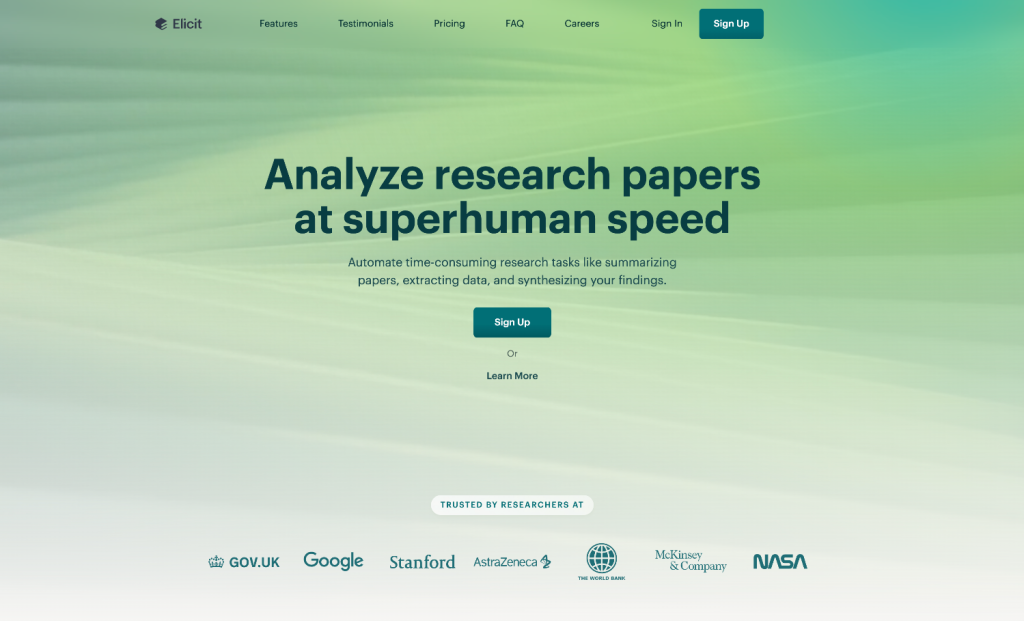
Research Rabbit
Research Rabbit was developed to address the growing challenge of information overload in academia. While specific historical details about its founding are less documented than those of Elicit, it emerged from the need for better organization and discovery tools in academic research. Research Rabbit allows users to create collections of academic papers based on their interests and track new developments within their fields. The platform’s recommendation engine analyzes user preferences to suggest additional relevant documents, streamlining the research process.
The tool has gained traction among researchers for its ability to manage large volumes of literature efficiently, enabling users to focus on critical insights rather than being overwhelmed by data.
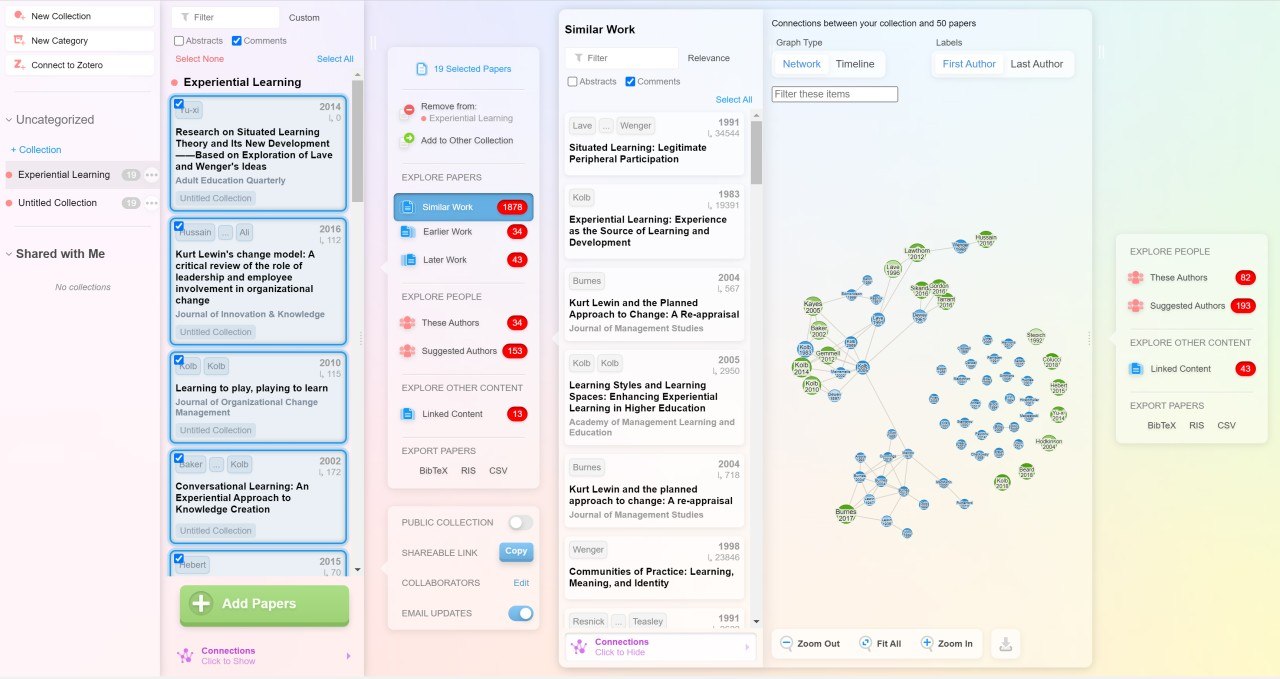
Scinapse
Scinapse has evolved from earlier academic search engines that primarily relied on keyword matching to a more sophisticated approach using AI algorithms. Launched around 2019, Scinapse aims to simplify the discovery of relevant research papers across various disciplines. Its comprehensive database includes millions of academic articles, allowing researchers to enter specific queries or topics and receive a ranked list of pertinent studies.
Scinapse’s development reflects a broader trend in academia towards utilizing AI for enhanced search functionality, ensuring that researchers can stay updated with the latest advancements while minimizing time spent on manual searches.
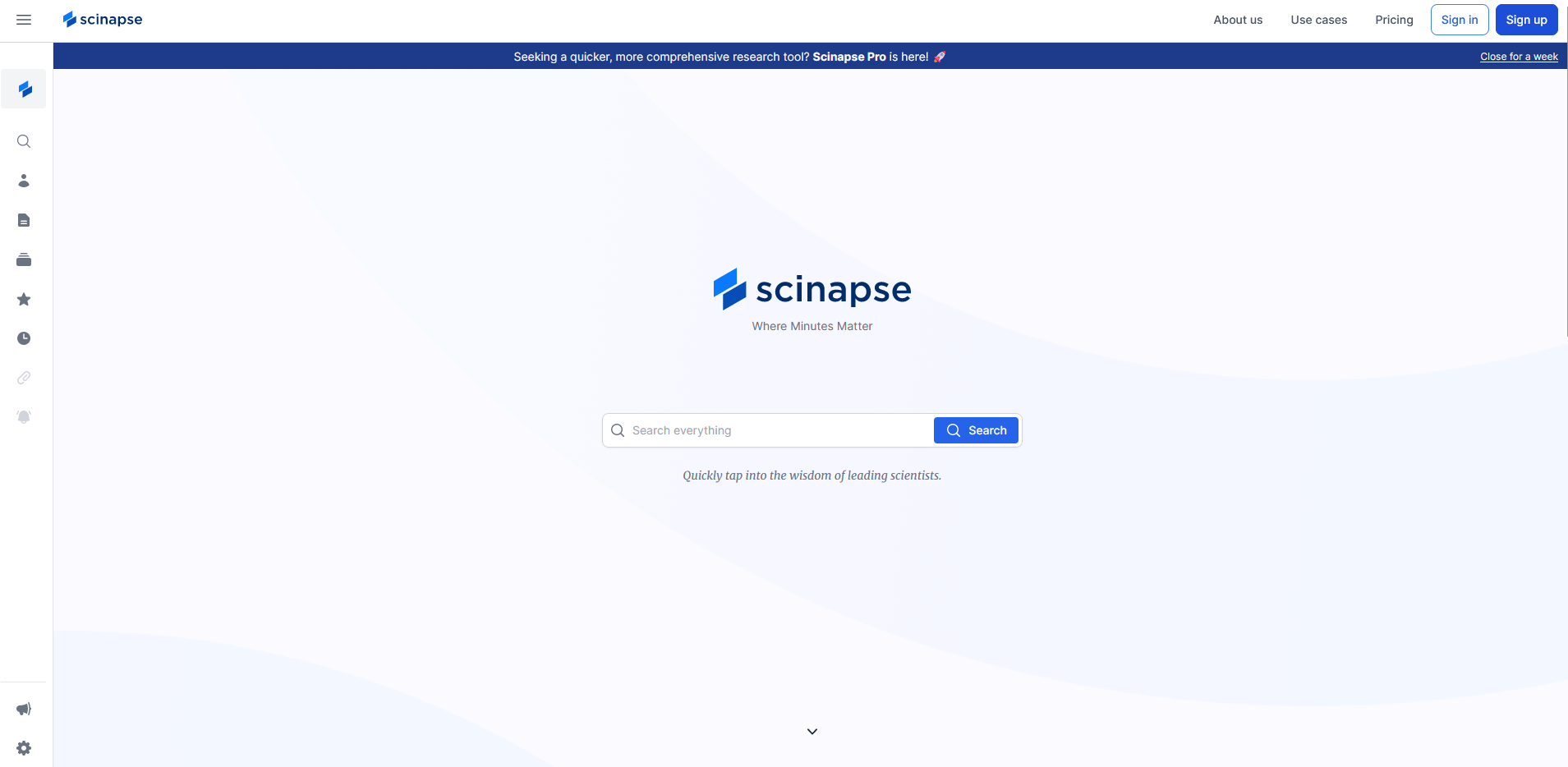
Paperpal
Paperpal is an AI-driven research assistant designed to enhance writing quality and citation management in academic contexts. Though specific historical details about its founding are not widely available, it represents a response to the increasing demand for tools that improve clarity and coherence in academic writing. Paperpal offers features such as automated citation checks and tailored writing suggestions based on extensive training from scholarly articles.
This tool has become essential for researchers looking to streamline their writing processes while ensuring adherence to academic conventions.

Bit AI
Bit AI emerged as a collaborative knowledge management platform designed for teams engaged in research efforts. While its exact founding date is not specified, Bit AI reflects the growing need for real-time collaboration tools in an increasingly remote work environment. It allows teams to organize insights collaboratively through document editing capabilities and integrates various content types into comprehensive research documents.
The platform’s focus on collaboration addresses the challenges faced by research teams in managing shared knowledge effectively.
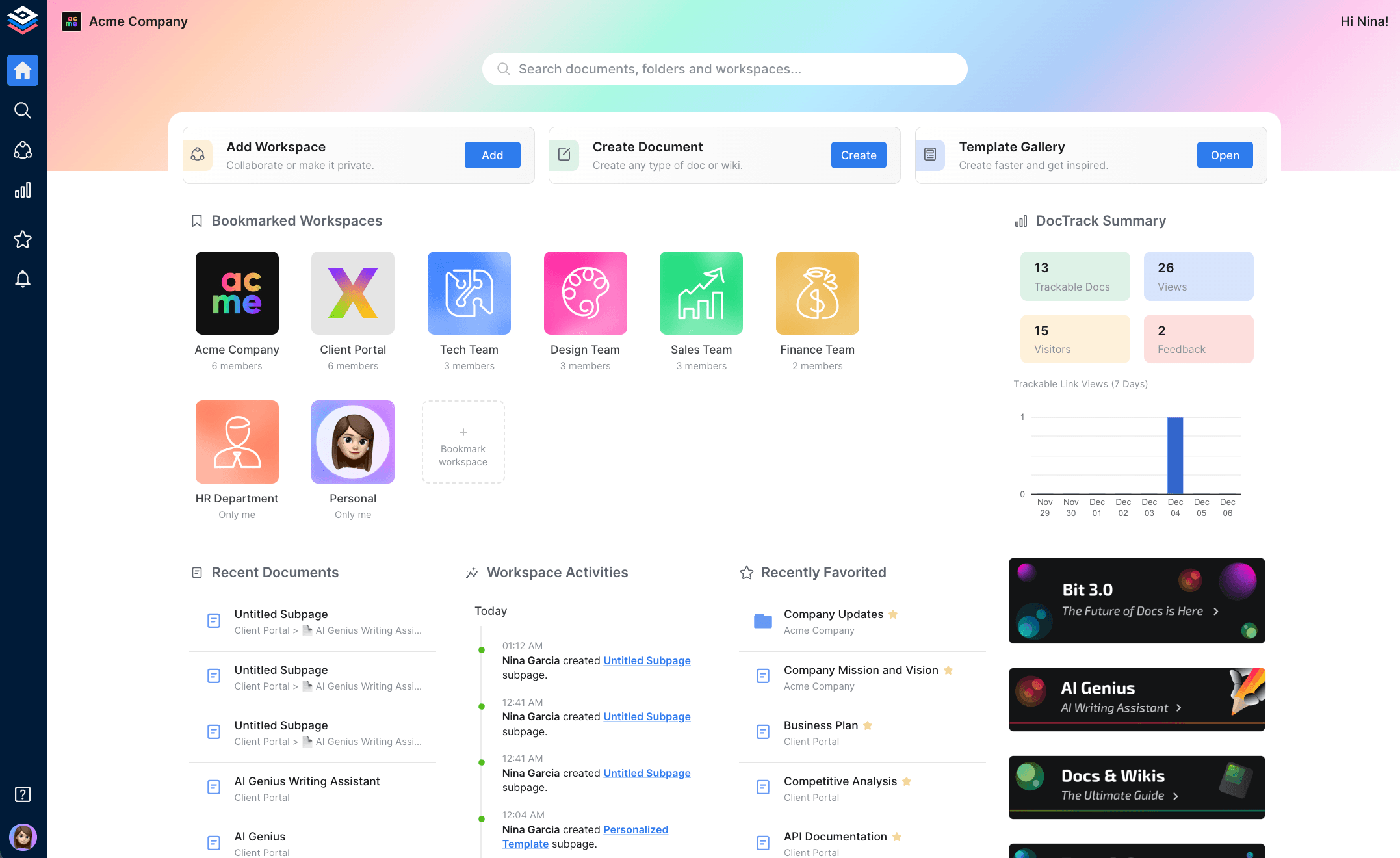
Perplexity AI
Perplexity AI offers a novel approach to information retrieval by providing concise answers to complex queries rather than traditional search results lists. Although specific historical details about its inception are not readily available, Perplexity represents an evolution in search technology aimed at simplifying information access for researchers. By utilizing advanced NLP techniques, Perplexity interprets user queries effectively, delivering context-rich responses backed by credible citations.
This tool is particularly beneficial for those seeking quick insights without navigating through numerous articles.

R Discovery
R Discovery was developed to enhance literature searches by providing personalized reading recommendations based on user interests across an extensive database of scholarly articles. While specific historical details about its founding are not widely documented, R Discovery addresses the challenges researchers face in keeping up with vast amounts of published work. It offers tailored suggestions aligned with individual research goals and includes features like audio papers for auditory learners.
This platform exemplifies the trend towards personalized tools that cater specifically to the needs of modern researchers.

Julius
Julius combines personalized assistance for literature reviews with robust statistical analysis capabilities tailored for academic contexts. While detailed historical information about its founding is limited, Julius emerged from the need for accessible statistical tools that cater both to seasoned researchers and students new to data analysis methodologies. The platform guides users through analysis processes while providing visualizations that clarify trends and results.
Julius represents an important development in making statistical analysis more approachable for those engaged in academic research.
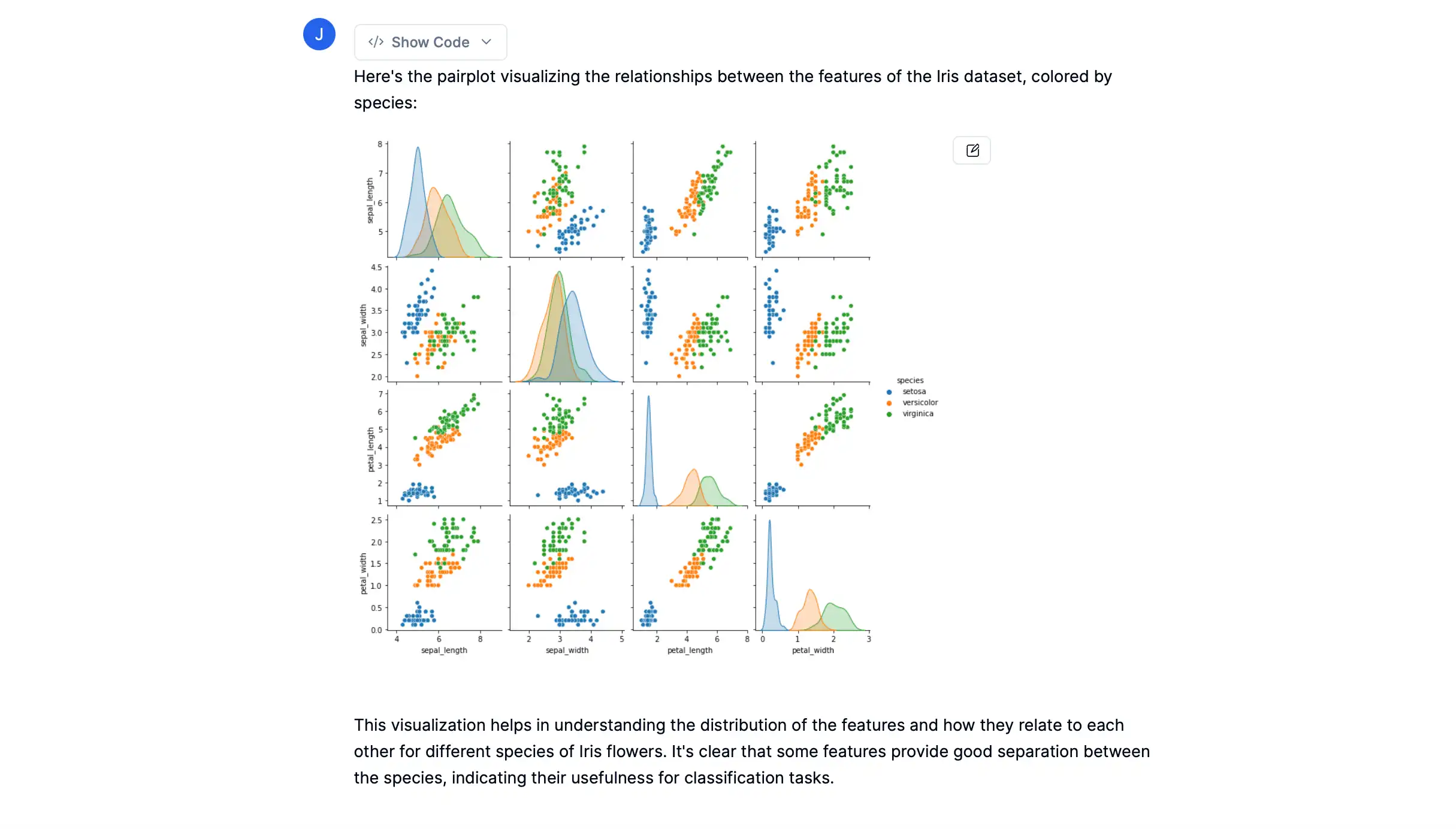
AI tools are fundamentally reshaping how researchers approach their work in 2024. By automating tedious tasks such as literature reviews and data analysis while enhancing collaboration among teams, these tools not only save time but also improve the quality of research outputs significantly. If you would like to use an AI tool specific to your industry, check out our article on the best AI tools for each industry.














